As heightened compliance with ESG rules becomes more important, especially in Europe, the United Kingdom has shown a strong flare for proactive implementation
As the world grows more complex and the volatility of global politics escalates, corporate compliance and risk management teams have never been more important — nor had more responsibility. Part of the expanded responsibilities within risk and compliance functions is that environmental, social & governance (ESG) standards have become an increasingly important reflection of a company’s values, goals, leadership, and reputation.
As heightened ESG standards become the norm, especially in Europe, jurisdictions have responded with increased regulation. The impacts of non-compliance are likely to grow significantly, especially for companies with a brand reputation that investors and customers associate with responsible, sustainable governance.
Yet these expanded external ESG requirements are putting internal pressures on risk and compliance teams, according to the first ever Thomson Reuters Risk & Compliance Survey Report.
In fact, five of the top seven compliance risks from our survey fall under the ESG umbrella, including data and cybersecurity risks, use of artificial intelligence (AI), and third party and supply chain risks, all of which are key governance issues. In addition, supply chain due diligence reporting has implications for environmental and social issues as well. Indeed, carbon emissions as part of the E in ESG, and ensuring there are no human rights issues within the supply chain, a key social issue, have become important reporting topics.
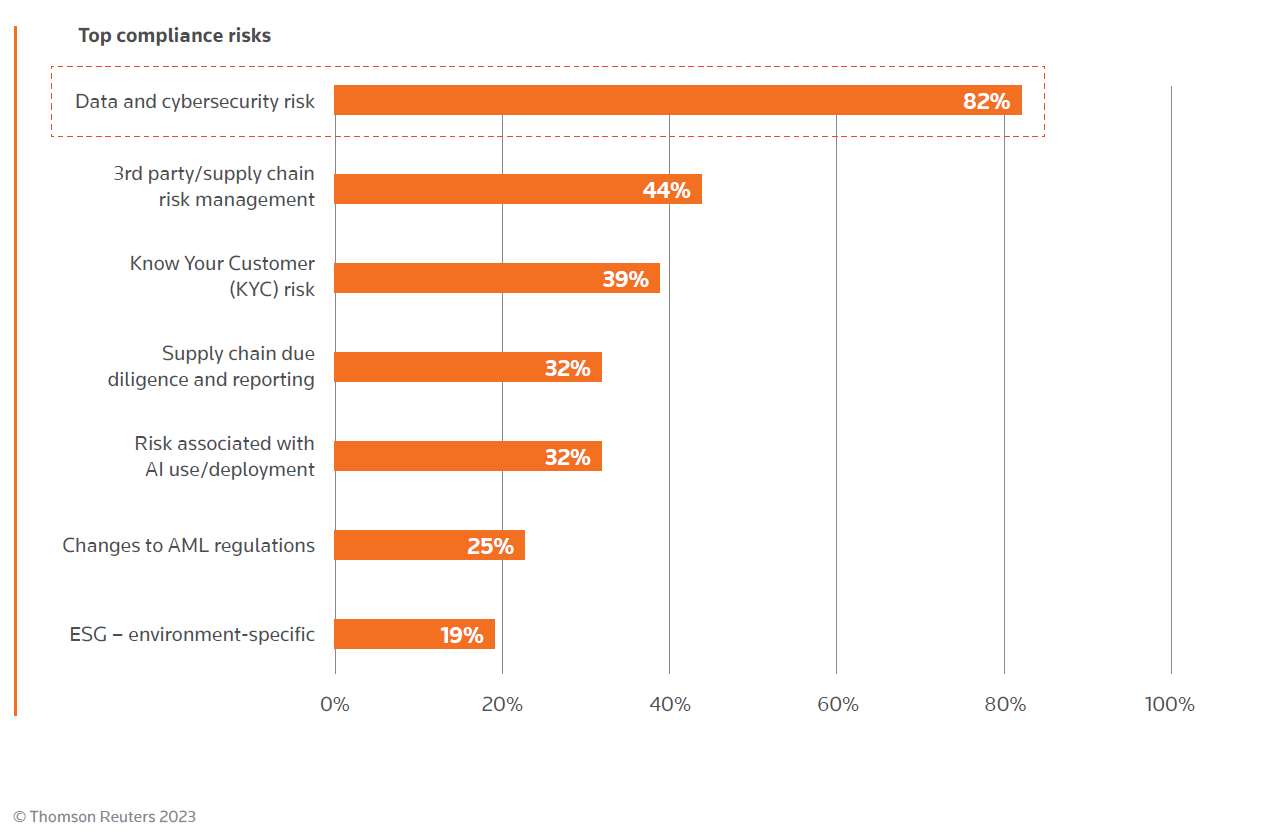
The expanded responsibilities related to ESG for risk and compliance teams is showing up mainly in the area of governance. In fact, ESG compliance has become so in-grained into the fabric of corporate governance that two-thirds of survey respondents agreed that their organization has a duty to both stakeholders and society to address ESG-related issues. Almost as many (62%) agreed that ESG-related risk, regulatory, and compliance considerations are an important factor in organizational decision-making. And remarkably, an equal number agreed that their companies should address ESG issues even if doing so is detrimental to short-term profitability.
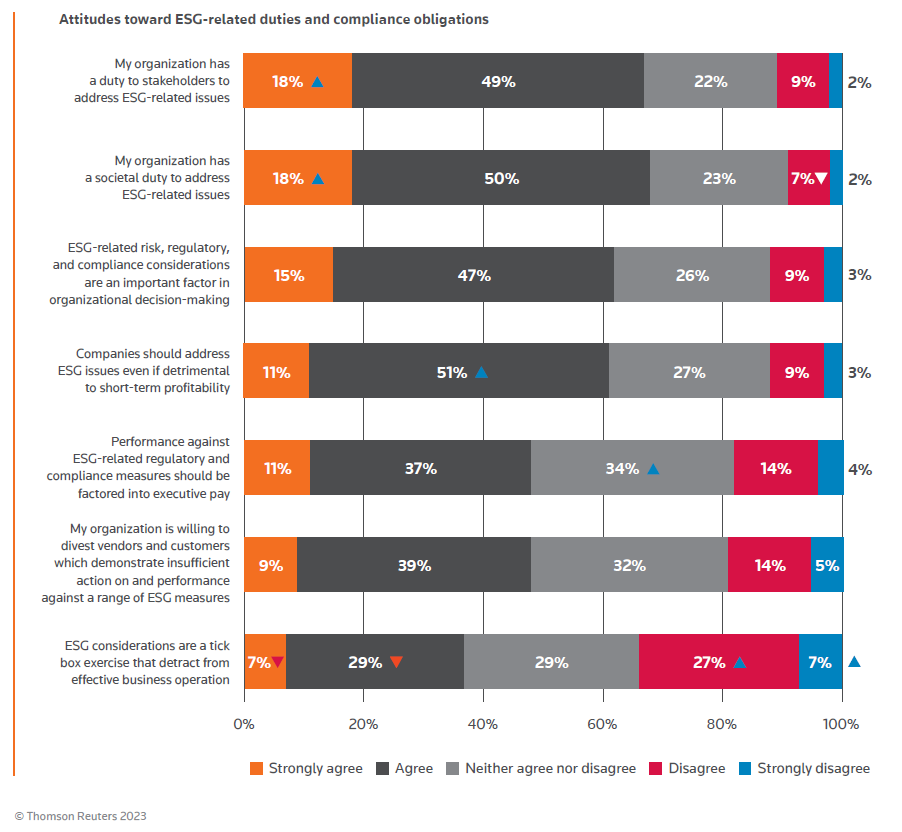
The UK: Following Europe’s lead on ESG compliance
Significantly more companies based in the United Kingdom than in North America are taking a more proactive approach to meeting ESG expectations, in part, because of divergent regulatory regimes between the two geographies. UK companies are also more likely than North American companies to give broad responsibility to their board for establishing and ensuring ESG benchmarks (40% in the UK, compared to 28% in North America, according to our survey) — and also more likely to designate ESG oversight to an individual board member. UK companies are also twice as likely — 40% to 20% — as North American companies to actively engage with such external stakeholders as investors, non-governmental organizations (NGOs), and customers, according to respondents. In fact, almost one-third (30%) of respondents from North American companies said their companies simply doesn’t engage with external stakeholders at all.
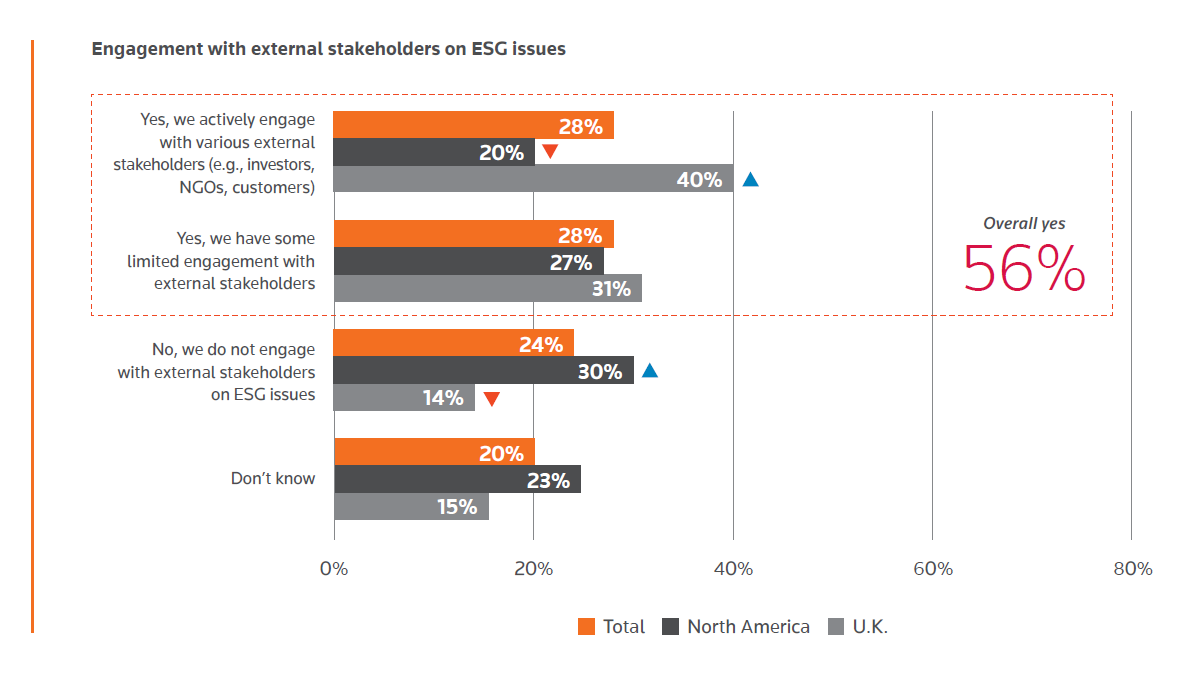
Given that Europe has taken the global lead in establishing and enforcing ESG standards, it is also not surprising that more UK companies follow general regulatory reporting requirements for ESG and have a formal reporting framework in place for doing so. Additionally, on almost every measure of ESG effectiveness — such as internal metrics, team assessments, communication with external stakeholders, internal surveys and feedback, the use of external consultants, and a host of other factors — UK companies are at least 10 to 15 percentage points ahead of businesses in North America.
Meeting ESG goals
From the outside, however, it is sometimes difficult to determine the extent to which ESG has gained traction in an organization and how, precisely, a company is formalizing its ESG obligations. One measure of ESG commitment is how much an organization has changed as a result of its ESG goals. In our survey, fully two-thirds (67%) of respondents said they saw ESG-related organizational changes take hold within their companies over the past one to three years. And again, UK companies lead the way.
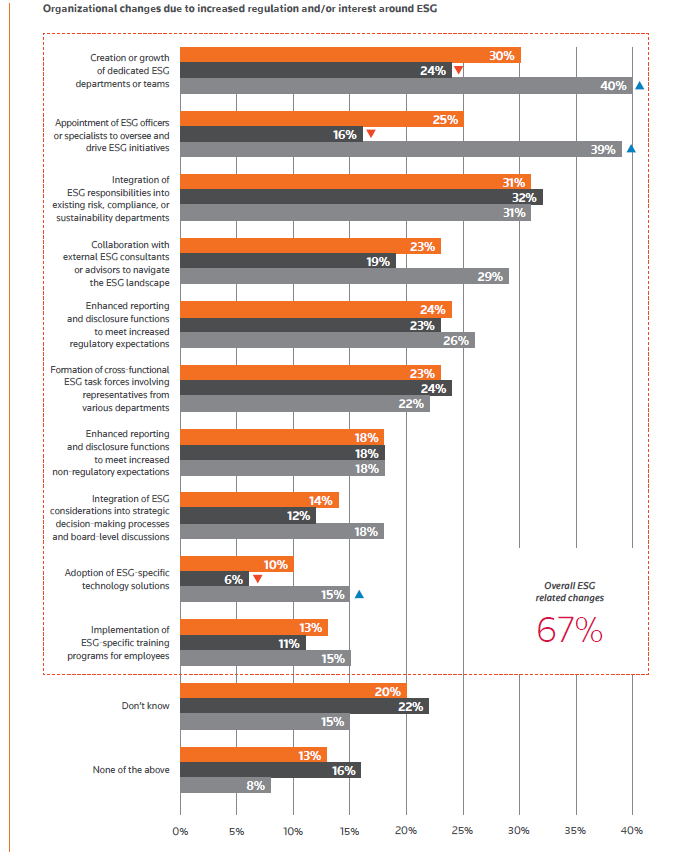
For example, 40% of UK-based respondents said their company has established a dedicated ESG department or team, as opposed to 24% of North American respondents saying this. Also, 39% of UK respondents said their organization has appointed ESG officers or specialists to manage ESG initiatives, whereas only 16% of North American respondents said their companies have taken that step. However, almost one-third (31%) of respondents in both regions say their companies have integrated ESG responsibilities into their existing risk, compliance, or sustainability departments.
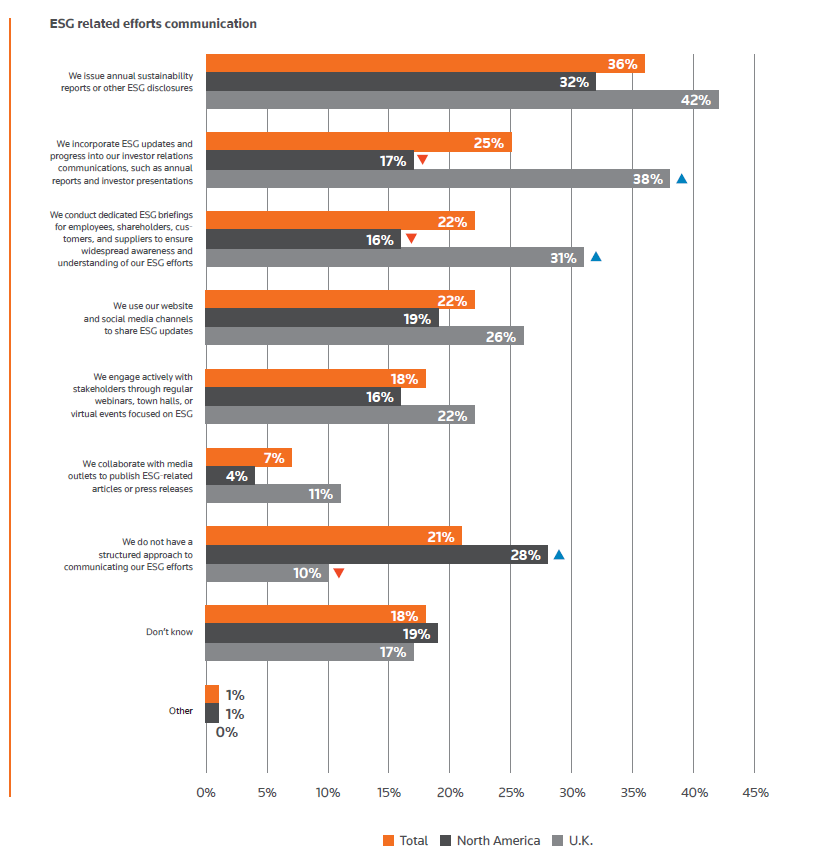
Companies in the UK also are significantly more proactive when it comes to communicating, reporting, and disclosing ESG-related initiatives and accomplishments, the survey shows. Indeed, 42% of UK respondents said their companies issue annual sustainability reports or other types of ESG disclosure statements, whereas only 32% of North American companies are doing this.
Further, UK companies are much more likely to be proactively transparent about their ESG initiatives as well. For example, 38% of UK respondents said their companies incorporate ESG progress updates into their annual reports and investor presentations, compared to 17% of North American companies that do that. And 31% of UK respondents said their company conducts dedicated ESG briefings for employees, shareholders, customers, and suppliers in order to spread general awareness of the company’s ESG efforts — whereas only 16% of North American respondents said their companies are as progressive.
Another trend that continues to add responsibilities — but one which risk and compliance teams have come to embrace — is the burgeoning world of ESG compliance. Most respondents to this year’s survey feel that keeping up with ESG-related issues and regulations is crucial to both company stakeholders and society at large. Perhaps in part due to proximity to Europe, many UK respondents feel more strongly about the importance of ESG than do their North American counterparts.
However, considering the swiftly evolving nature of this area of corporate governance, future surveys are likely to tell a different story with a strong likelihood pointing to narrowing in the gap in action between geographies.







